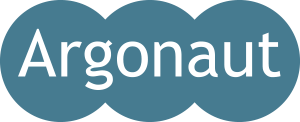Celebrations and national holidays:
- Khmer New Year (Chaul Chnam) a big celebration in mid April likely to disrupt projects and interrupt normal business for a few days.
- Bon Om tuk celebrates a military victory 900 years ago. Significant also because it usually marks the end of the rainy season.
- Some holidays require more formal dress for special events.
Food: taboos and favourites
Do not eat with your left hand. Expect to eat sometimes while sitting on the floor and taking food from a communal bowl. Often alcohol will not be served at business events when women are present.
Landmarks and places of cultural significance:
- Any temple (pagoda) or monastery (wat). Visitors are required to show deep respect and dress and behave modestly.
- Choeung Ek Killing fields, maintained as a monument to a bloody period of recent history.
- Phnom Sontuk – holy mountain.
- Angkor Wat – large temple complex and symbol of former Khmer imperial glory
Language skills and foreigners:
Interpreters and transcription are often needed between Khmer speakers and foreigners in international business. English is the main foreign language, with older Cambodians knowing French too. Chinese may be used for business. Cambodians welcome foreigners speaking a few words of Khmer but they generally don’t expect you to do business in their language.

